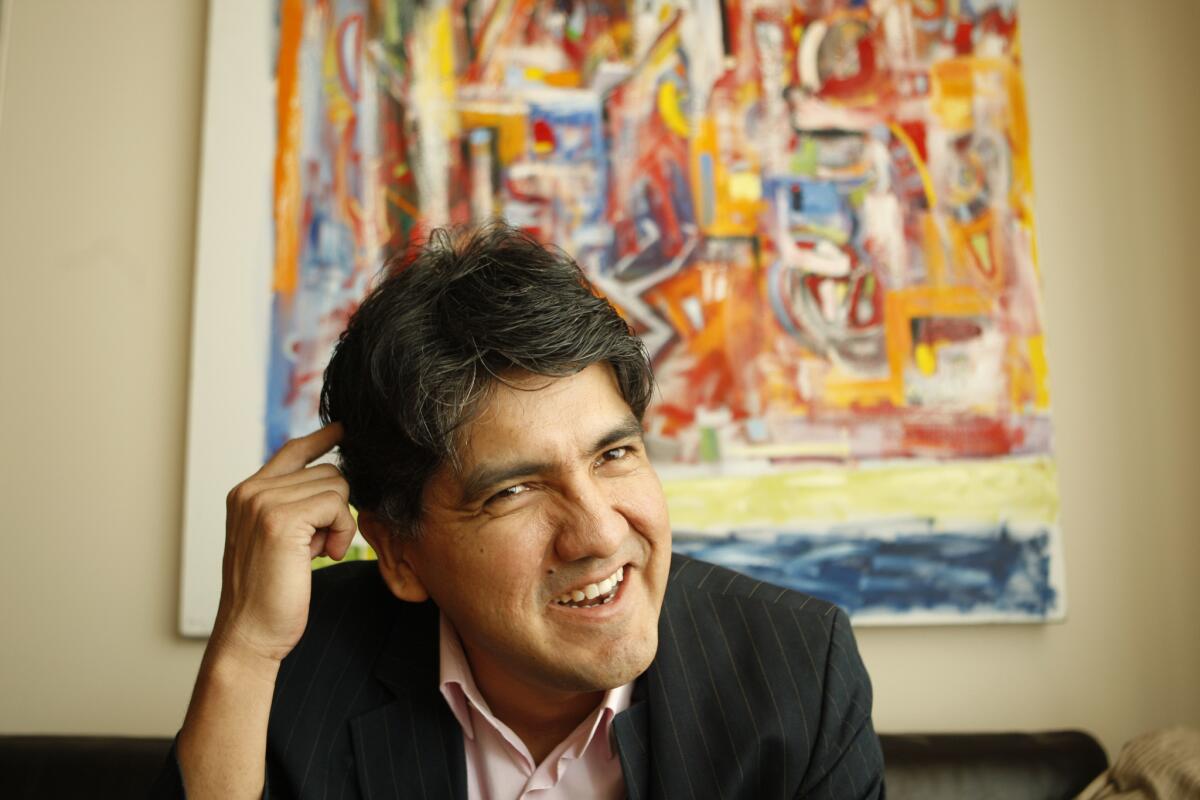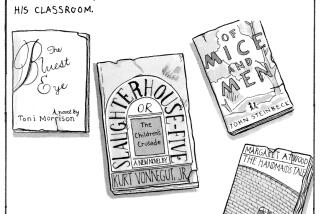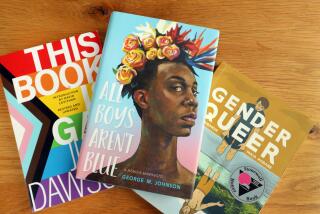The most banned and challenged books of 2014

Sherman Alexie’s award-winning young adult novel “The Absolutely True Diary of a Part-Time Indian” was the most-challenged book of 2014.
A memoir by a sexual assault survivor, a science fiction comic book and a children’s book about gay penguins were among the 10 most frequently banned or challenged books in the United States last year, according to the American Library Assn. (ALA).
The ALA’s Office for Intellectual Freedom today released its annual “Top Ten List of Frequently Challenged Books,” based on over 300 reports of community members attempting to have literature removed from libraries and school curricula. The organization notes that “attempts to remove books by authors of color and books with themes about issues concerning communities of color are disproportionately challenged and banned.”
Four of the books on the list are by writers of color: “The Absolutely True Diary of a Part-Time Indian” by Sherman Alexie, “Persepolis” by Marjane Satrapi, “The Bluest Eye” by Toni Morrison and “The Kite Runner” by Khaled Hosseini.
Seven of the 10 books were challenged because they were “sexually explicit.” Among those books are two that deal with child sexual assault: Morrison’s novel “The Bluest Eye” and “A Stolen Life,” a memoir by Jaycee Dugard, who was kidnapped, raped and held prisoner for 18 years by a Mendocino couple.
“Homosexuality” is listed as the reason two of the books were banned or challenged: Stephen Chbosky’s perenially controversial “The Perks of Being a Wallflower” as well as “And Tango Makes Three,” Justin Richardson and Peter Parnell’s children’s book about two male penguins who form a relationship and raise a chick together. The book is based on a true story.
Other books on the list include “It’s Perfectly Normal” by Robie Harris, “Saga” by Brian K. Vaughan and Fiona Staples and “Drama” by Raina Telgemeier.
Alexie, who is something of a veteran of book-banning attempts, took the No. 1 spot on the list this year. On his Twitter account, he indicated that his place on the list was a badge of honor: “I am the proud author of the most banned/challenged book of 2014!” he tweeted.
The top 10 most banned and challenged books of 2014:
1. “The Absolutely True Diary of a Part-Time Indian,” by Sherman Alexie. Reasons: anti-family, cultural insensitivity, drugs/alcohol/smoking, gambling, offensive language, sex education, sexually explicit, unsuited for age group, violence. Additional reasons: “depictions of bullying”
2. “Persepolis,” by Marjane Satrapi. Reasons: gambling, offensive language, political viewpoint. Additional reasons: “politically, racially, and socially offensive,” “graphic depictions”
3. “And Tango Makes Three,” Justin Richardson and Peter Parnell. Reasons: Anti-family, homosexuality, political viewpoint, religious viewpoint, unsuited for age group. Additional reasons: “promotes the homosexual agenda”
4. “The Bluest Eye,” by Toni Morrison. Reasons: Sexually explicit, unsuited for age group. Additional reasons: “contains controversial issues”
5. “It’s Perfectly Normal,” by Robie Harris. Reasons: Nudity, sex education, sexually explicit, unsuited to age group. Additional reasons: “alleges it child pornography”
6. “Saga,” by Brian Vaughan and Fiona Staples. Reasons: Anti-family, nudity, offensive language, sexually explicit, and unsuited for age group.
7. “The Kite Runner,” by Khaled Hosseini. Reasons: Offensive language, unsuited to age group, violence
8. “The Perks of Being a Wallflower,” by Stephen Chbosky. Reasons: drugs/alcohol/smoking, homosexuality, offensive language, sexually explicit, unsuited for age group. Additional reasons: “date rape and masturbation”
9. “A Stolen Life,” Jaycee Dugard. Reasons: drugs/alcohol/smoking, offensive language, sexually explicit, and unsuited for age group
10. “Drama,” by Raina Telgemeier. Reasons: sexually explicit
More to Read
Sign up for our Book Club newsletter
Get the latest news, events and more from the Los Angeles Times Book Club, and help us get L.A. reading and talking.
You may occasionally receive promotional content from the Los Angeles Times.






